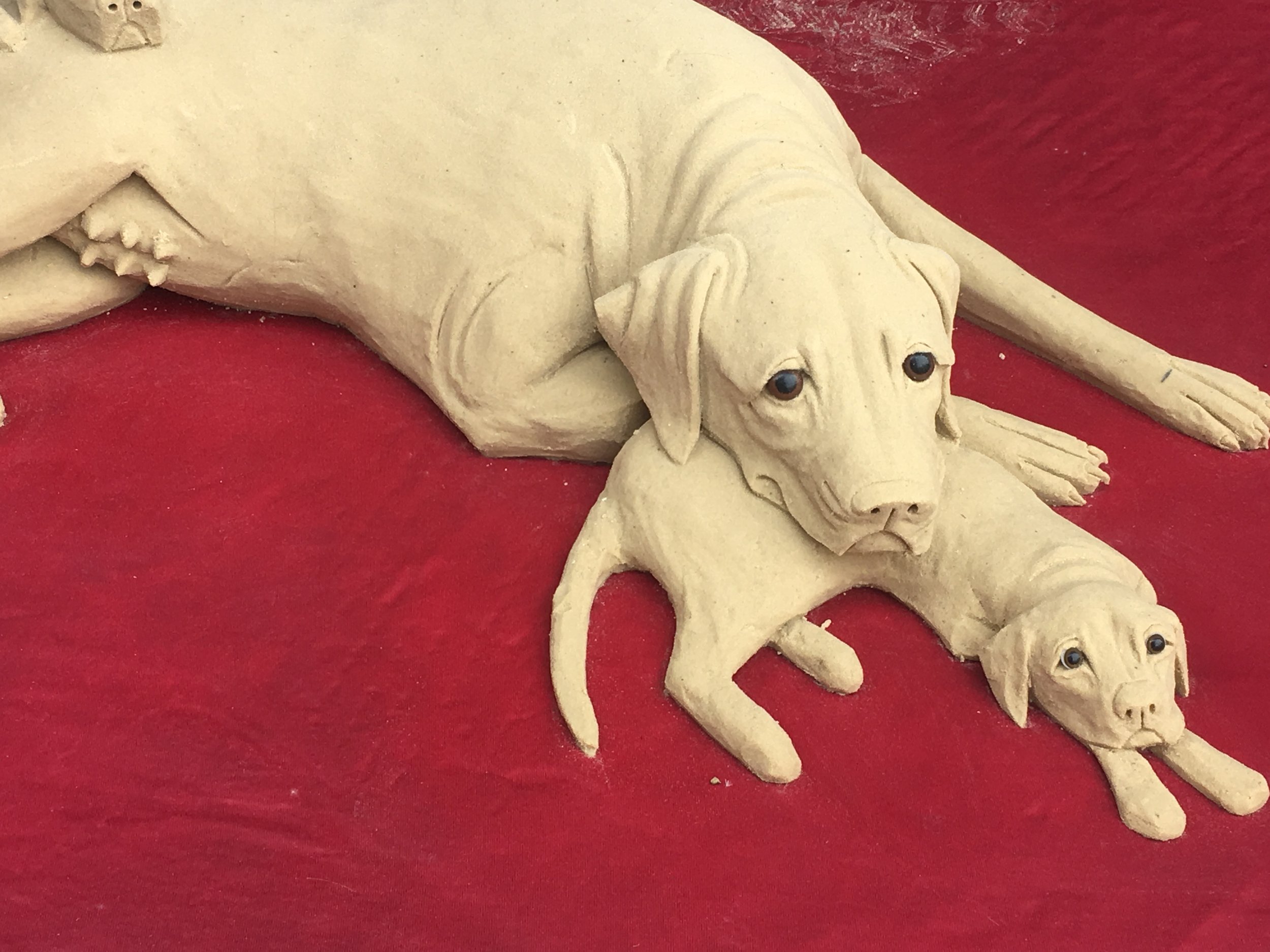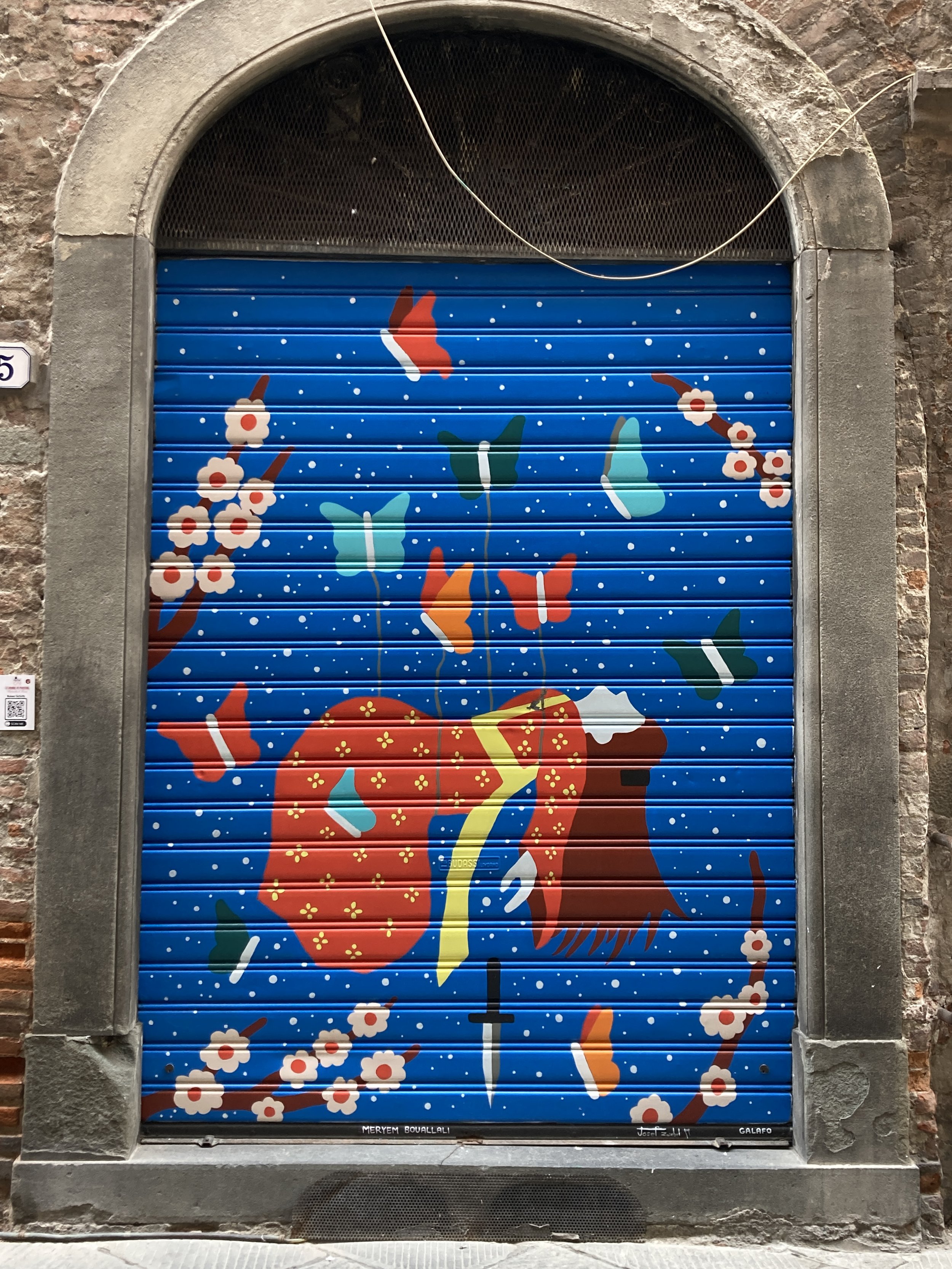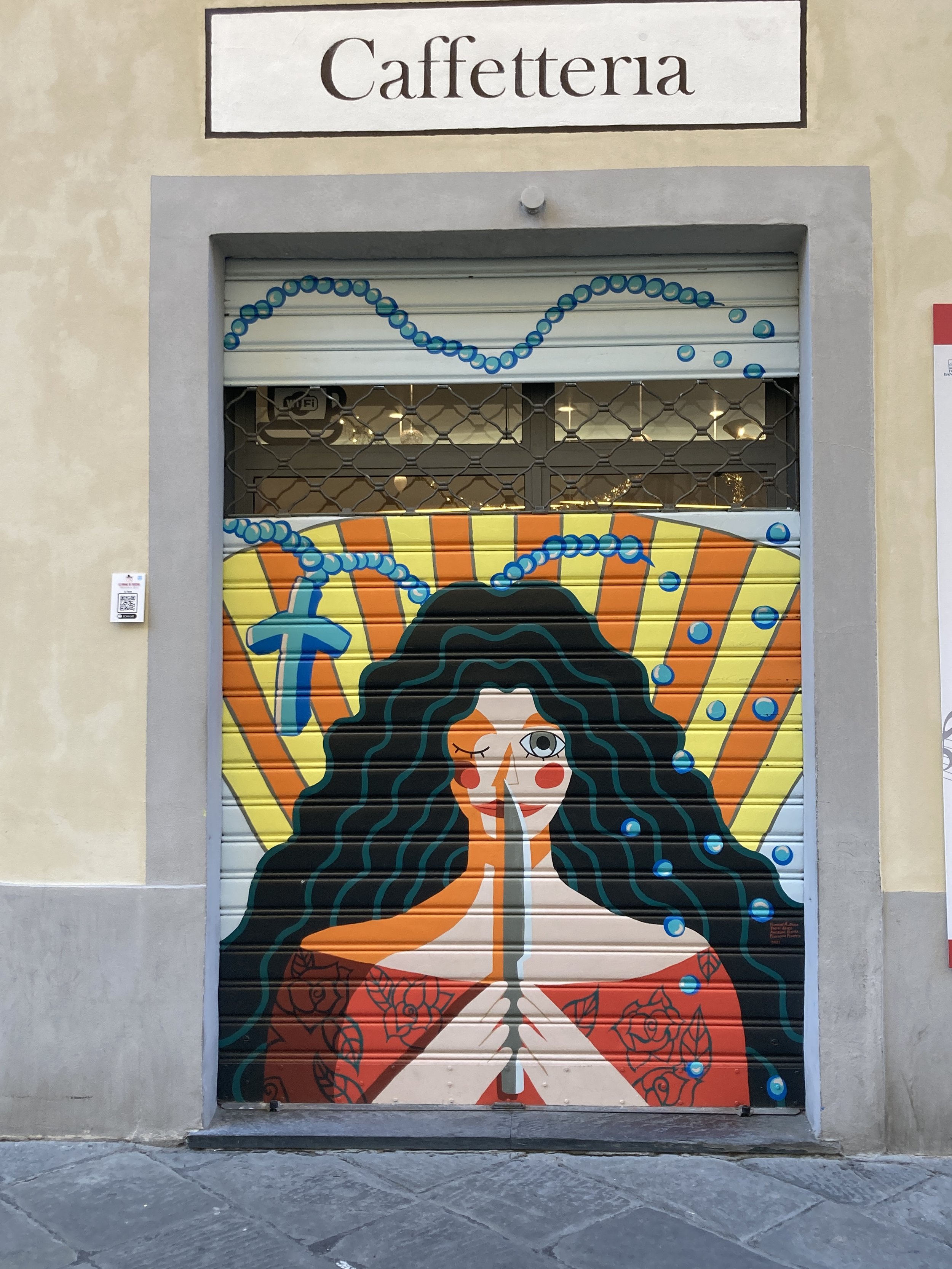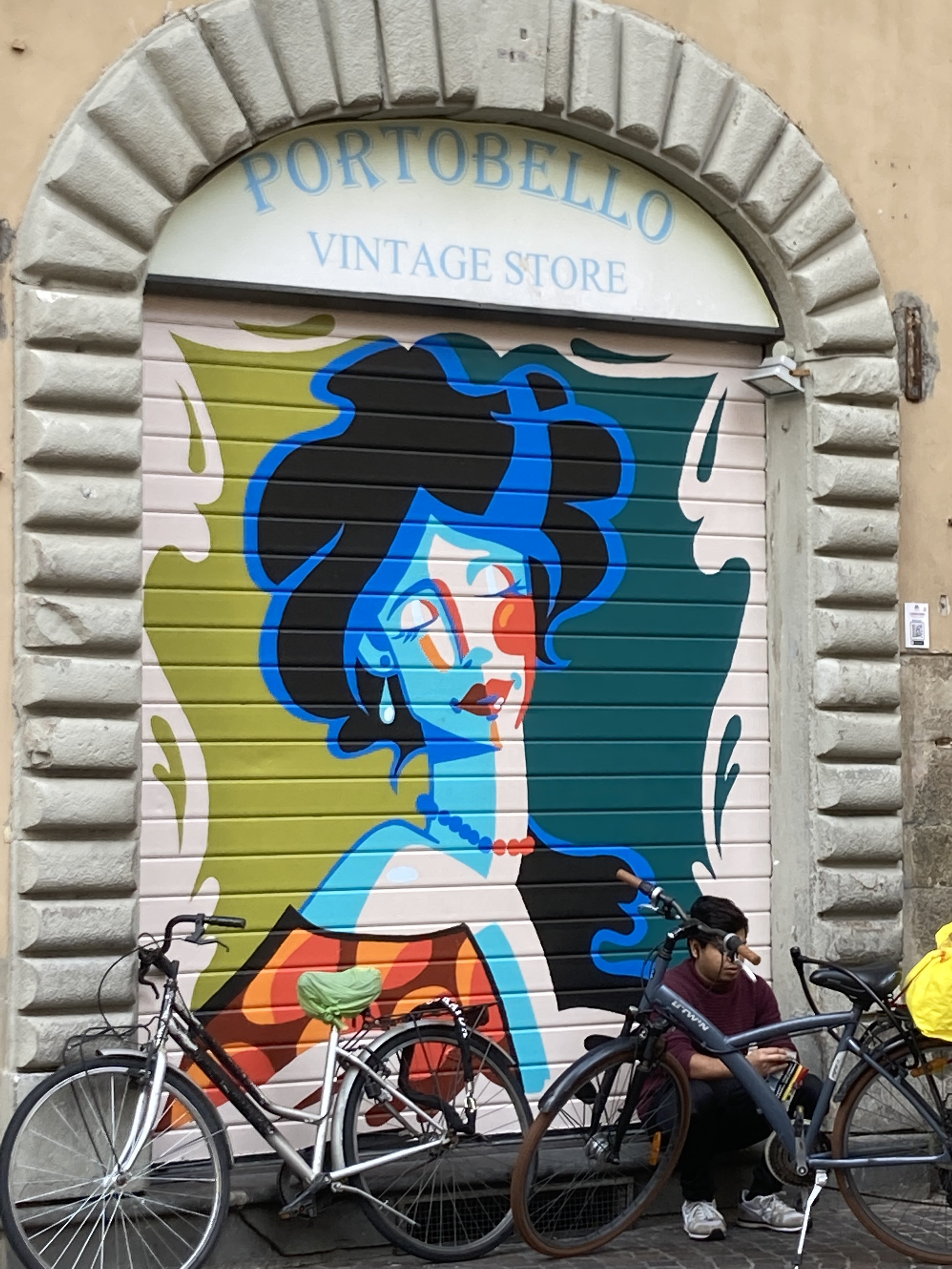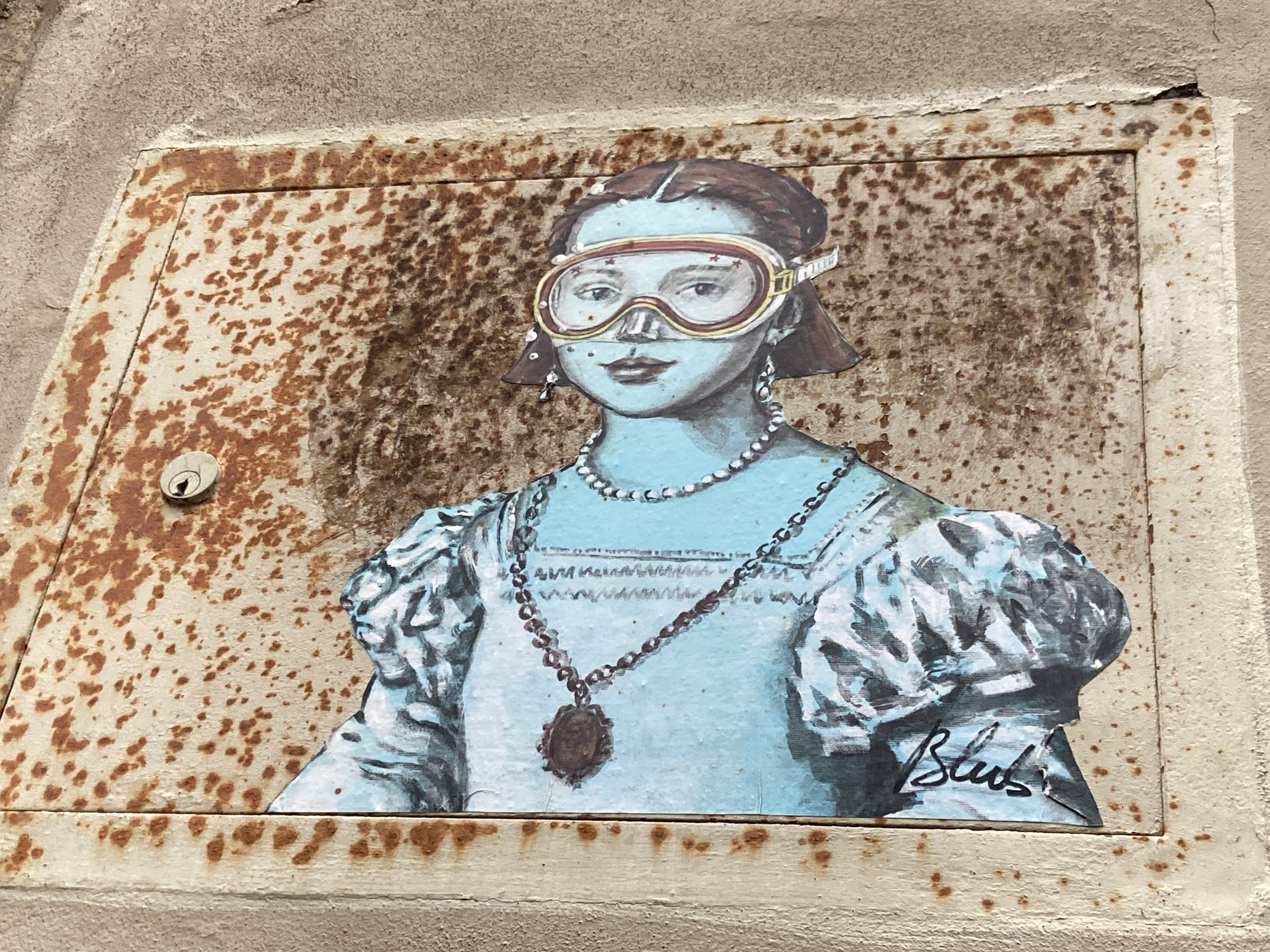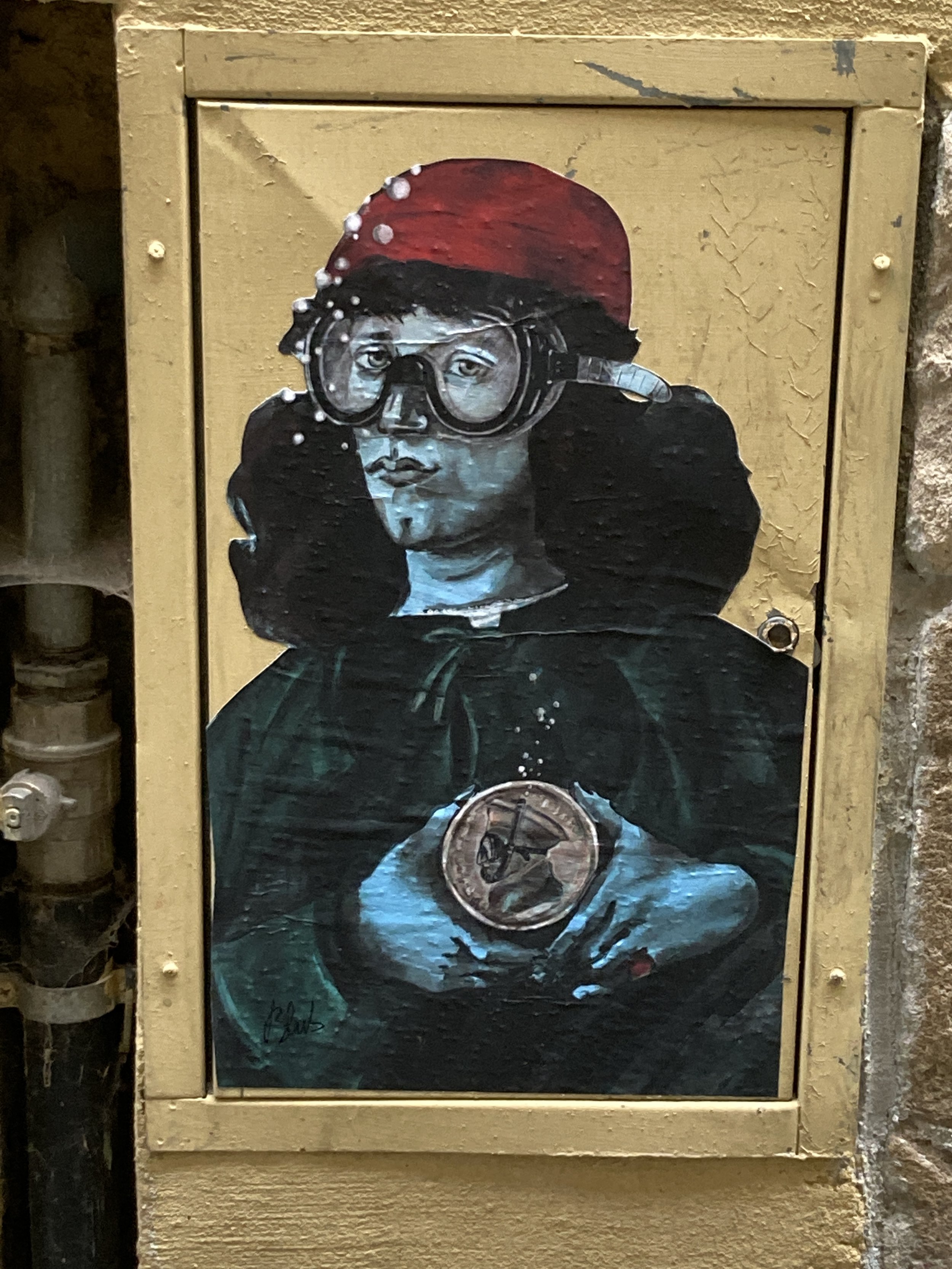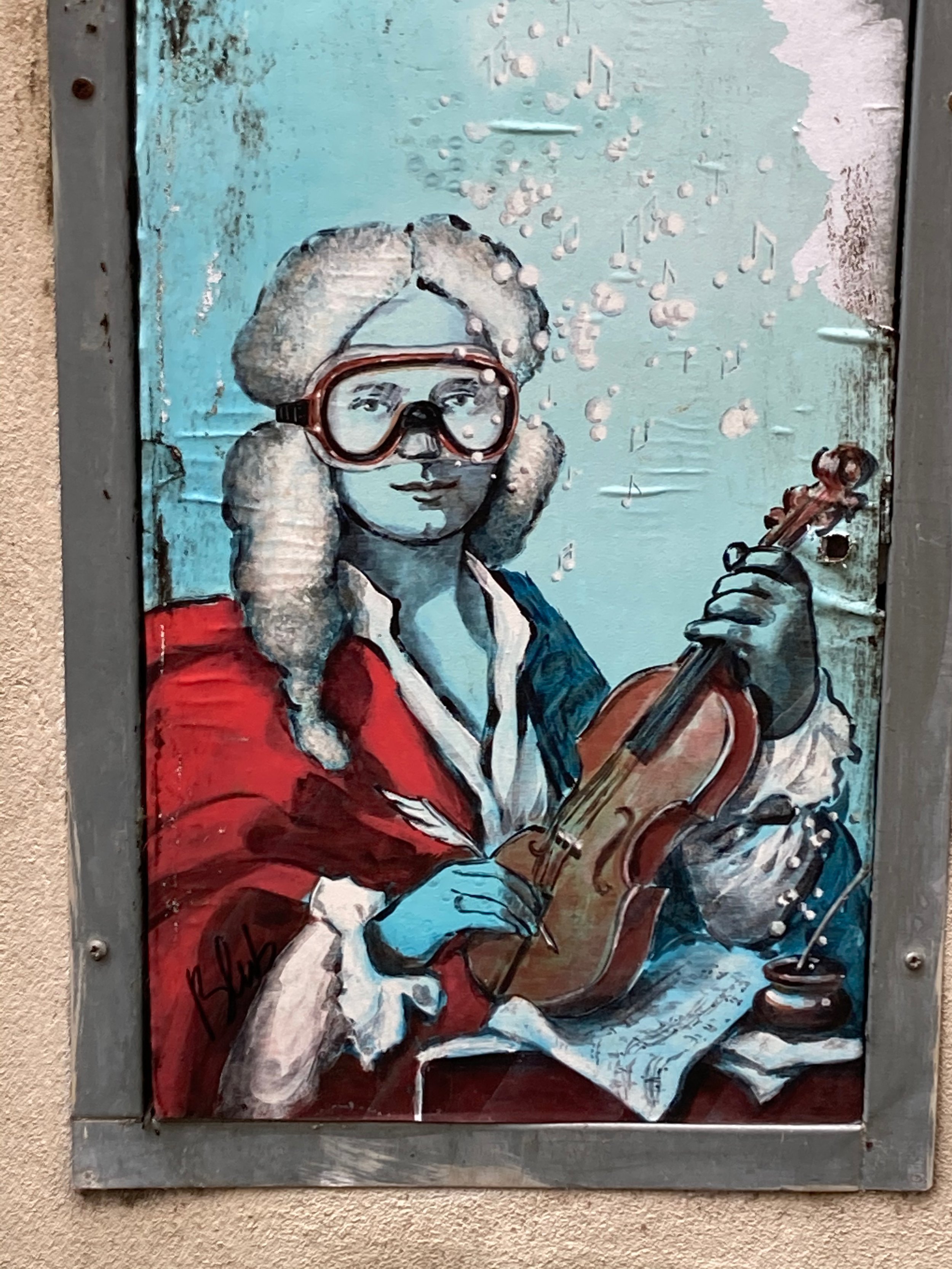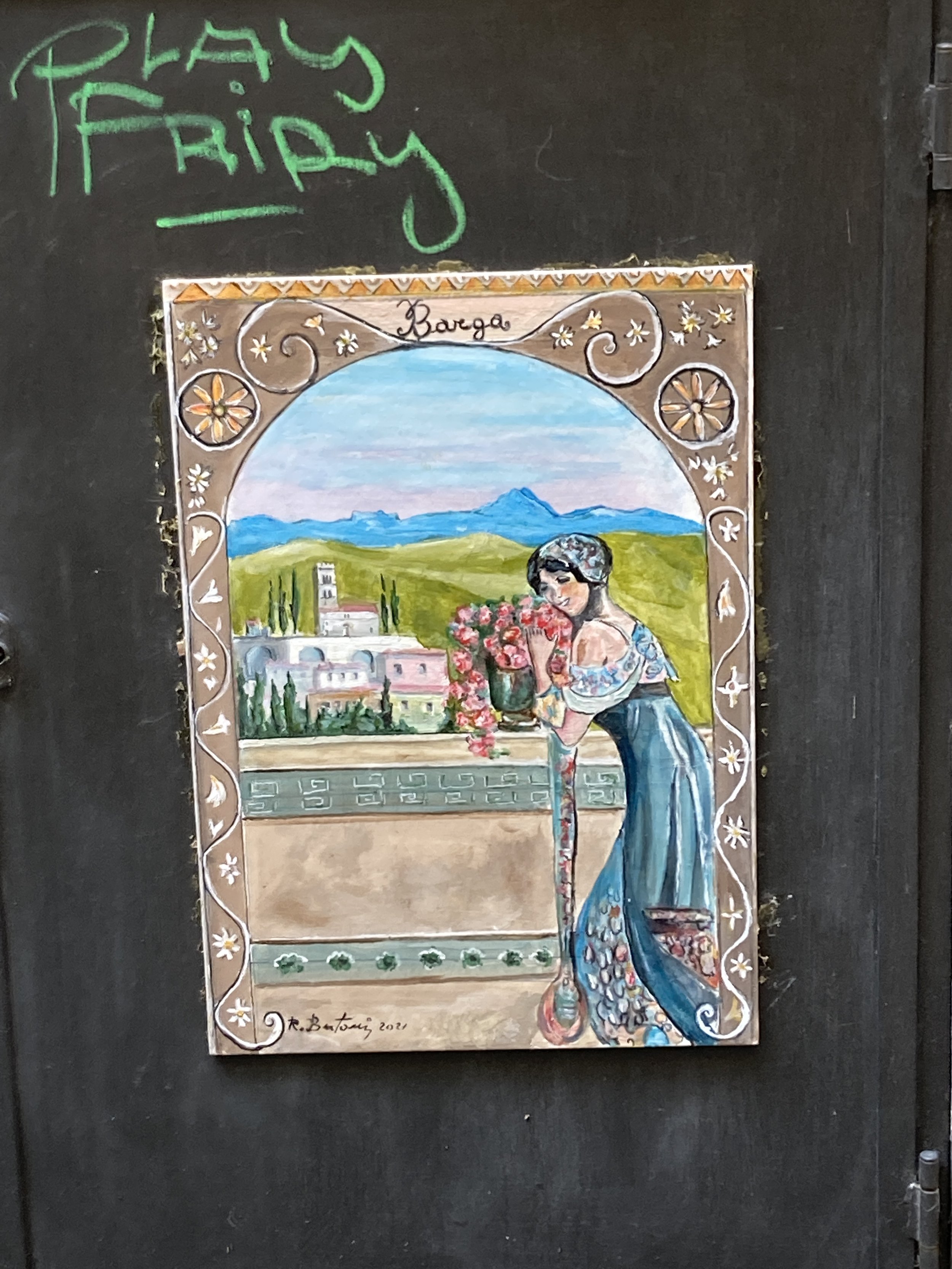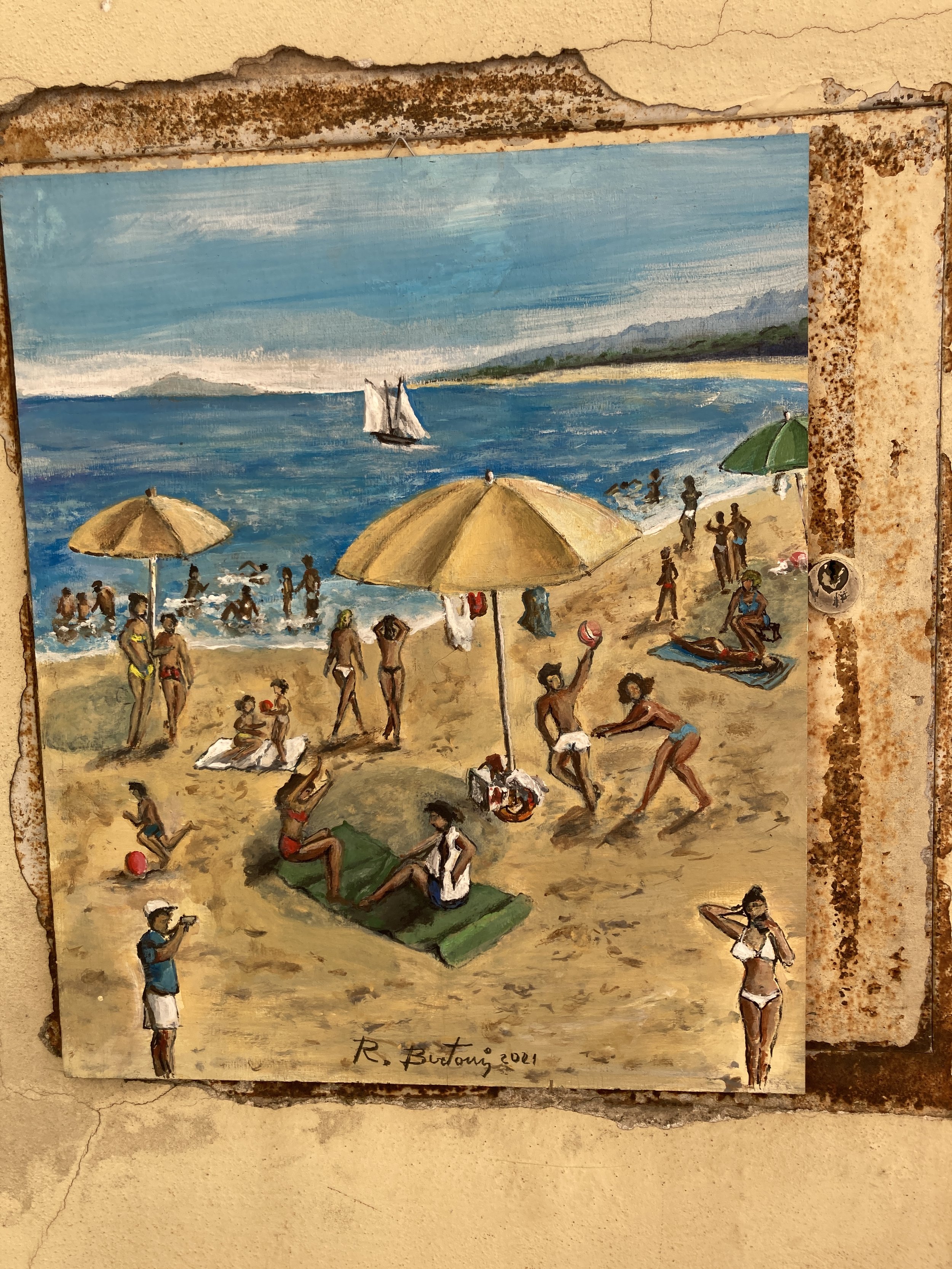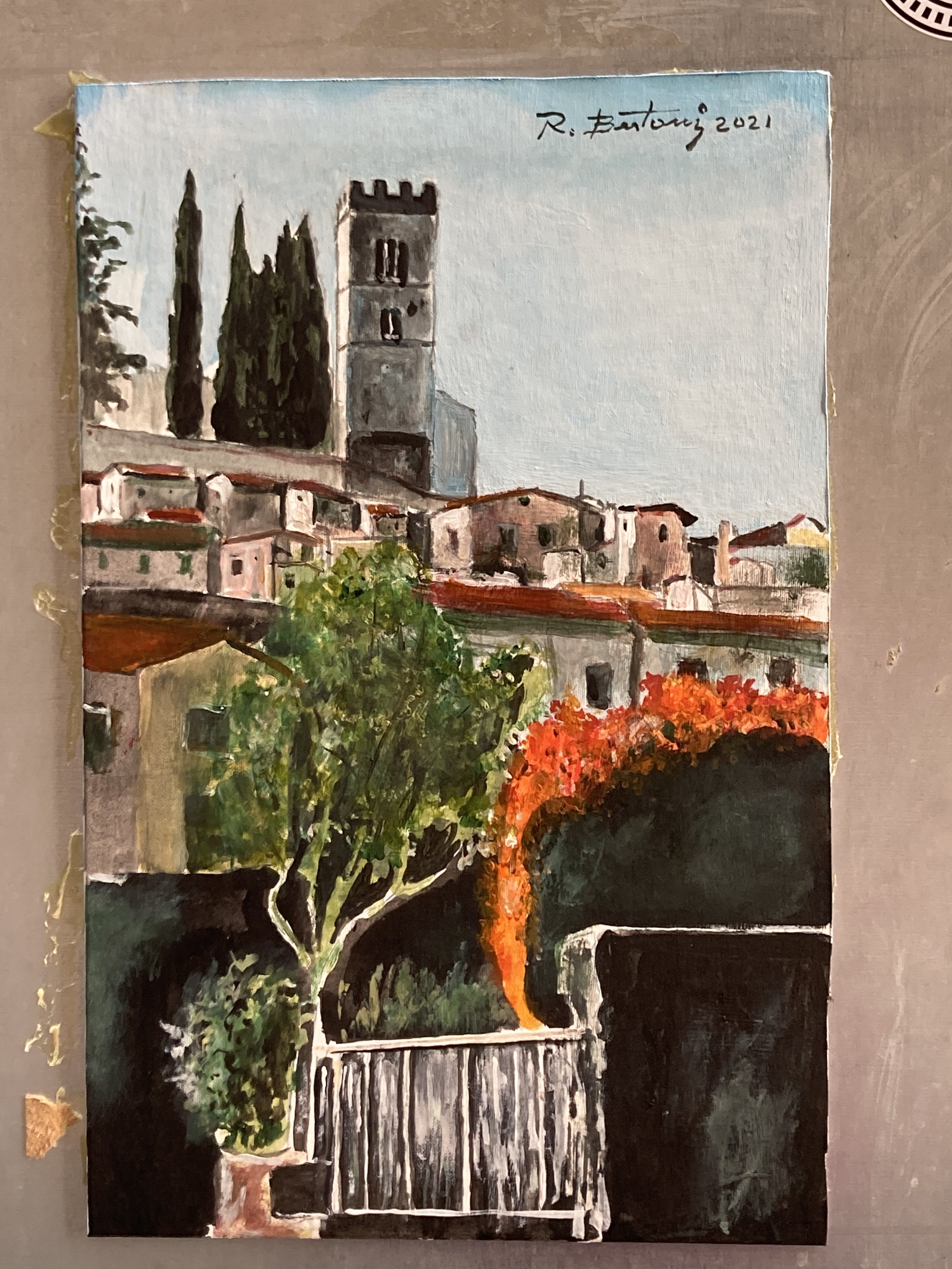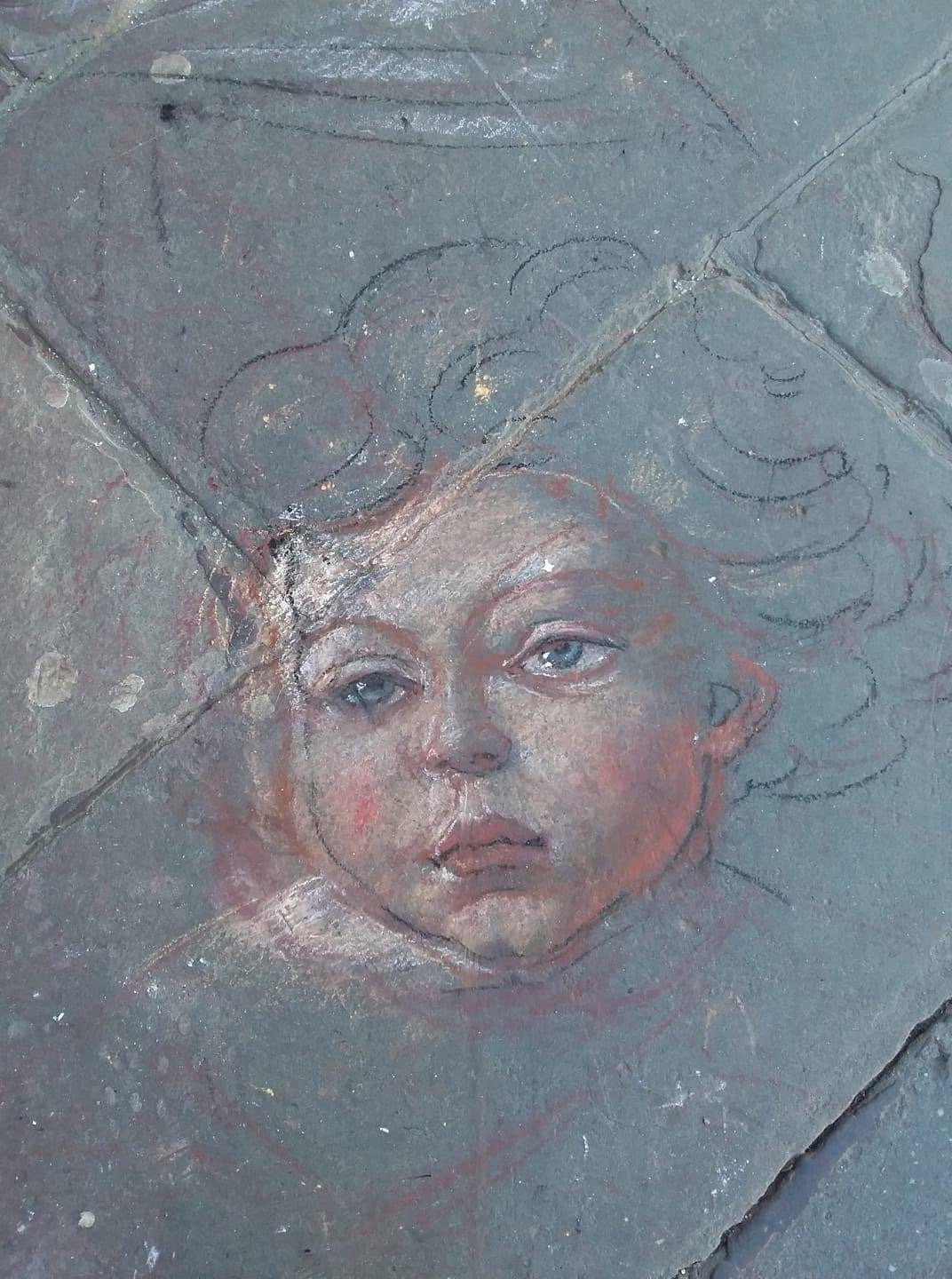Everyday Art in Italy
Italy offers endless opportunities to enjoy art. Here, art is everywhere. Ancient and modern art works fill museums large and small, famous or obscure. Art lives in the great cathedrals and surprises us in small chapels. Sculptures grace many piazzas and small ones fill tiny niches along village streets. Gardens and roadside shrines are decorated with graceful sculpture and artistic fountains.
If the definition of art is expanded to include architecture (as I believe it should be), then Italy truly surrounds us with art in the graceful form of buildings, the curlicue iron work of balconies, the moorish arch of windows, and the decorative brick work along medieval streets. These all help to paint the picture of Italy and fill our senses with artistic beauty.
Sand sculpture - the detail and expression delights, even if only for a short while.
Art or graffiti ? Either way, it certainly captures a certain moment in everyday life in Italy during the pandemic
But there are other, less traditional, forms of art to be found. I think of this as “everyday art”. It changes quickly as street artists and art students, working in paint, chalk, or even sand, lend their decorative talents to city streets, doorways, and just about any surface they can find along buildings and alleyways.
As much as I love the classic pieces to be found in more formal settings, the unexpected works of everyday art really delight me.
A recent form of everyday art found in Lucca graces several of the “garage door” type shutters that are pulled down over the entrances of many businesses. These paintings, done by groups of art students from the Passaglia Institute of Art and by local street artists last summer, are found in the area near the museum dedicated to Puccini in Piazza Cittadella. The series is dedicated to “le donne” (the women) of Puccini’s operas. It’s a fun activity to search these out and determine just which opera they represent. During the day the shops open, the shutters go up, and the paintings disappear. At night, down come the shutters and the works reappear. What fun it is to walk through Lucca early in the morning, before the shops open for the day, and see these works of everyday art.
Another example of everyday art, and one of my favorites, is the street art by Blub. Blub - think of it as the sound of bubbles rising through seawater - paints famous figures from art and history, each in an underwater diving mask. He chooses to remain anonymous, painting in his Florence studio by day and attaching the works under cover of darkness on the outdoor panels (often rusty ones) which enclose gas, electric, and water meters. The painting below, one of my favorites, is just around the corner from my apartment in Lucca. It’s not unusual to see people stop to take a photo !
Blub’s message has been described as “art knows how to swim” but I tend to think of it as saying that when the flood comes, and you are about to drown, put on your diving gear and get a move on.
Blub isn’t the only artist covering utility meter cabinets with his work. On a recent walk through the village of Barga I enjoyed a series of scenes which were also painted on utility boxes.
And this one was found in Lucca’s anfiteatro (the site of the ancient Roman amphitheater). A classic scene on a modern surface.
Street art can also be graffiti painted on the walls of buildings (probably not legal, but still enjoyable) like this one found in Rome in 2019.
It is always a surprise when a new piece of street art appears and each new one makes me smile. Just one more reason that it is delightful to spend time in Italy.
Chalk art in Lucca
.

